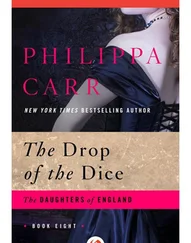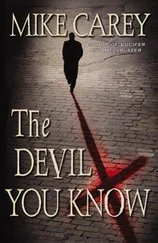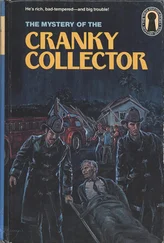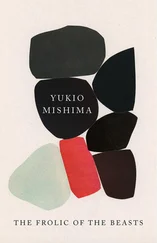The Naming of the Beasts
(The fifth book in the Felix Castor series)
A novel by Mike Carey
To Ade – for music, Brick Lane curries,
Bunhill Fields, Masonic temples, Old Brewery
and attendant conversations
All my knowledge of the Rickety Twins comes from my wife, Lin, and from the Theatrelands section of the London Metropolitan Archive’s website. I’m grateful to both. For the internal geography of the Paterson Building, and my own visualisation of Jenna-Jane Mulbridge’s little empire, I have to thank Ade Brown: he took the time and trouble to give me a guided tour, and fed me background information as I needed it. Castor’s comments on alcoholism carry echoes from the same source. Thanks also to my agent, Meg, for unfailing support, and to my editor, Darren, for a Spiro Agnew joke that’s better than the one I used.
It’s strange how other people’s deaths can take you, sometimes. You can build up as much scar tissue as you like – and I’d say I’ve got more than the average allocation, one way and another – but death can still sneak up on you from an unexpected angle and twist your guts.
The murdered woman had been trying to get out of her tiny little studio flat by means of the window. She’d probably been surprised in bed: woken from sleep to find the intruder already in her room. At any rate, the sheets and the duvet had spilled onto the floor, spread out along a more or less straight line between the bed and the point where she’d died.
A lot of the woman had spilled onto the floor, too. A crude wooden javelin of some kind – most likely the broken-off leg of a table – had passed through her lower abdomen with enough force to drive itself several inches into the plaster of the wall below the window. She remained impaled on it, slumped forward against the glass, one hand dangling at her side. The other hand was raised as though to reach for the latch, but it had come to rest on the sill instead.
A carpet of blood spread out from the body on all sides across the cheap yellow linoleum, setting off the death scene from the rest of the room.
She was a Caucasian woman, as the papers would no doubt put it, in her thirties, with a consciously retro-styled white Afro: tall but very slender of build, to the point where some of her friends might have worried that she was anorexic. The tabloids would probably add, with their usual eye for salacious detail, that she was naked except for a pink baby-doll nightie too short to hide her modesty. She looked vulnerable and pathetic, transformed into a tableau in the course of her undignified flight, brought down from behind by whatever it was she was running from.
Apart from that disconcerting centrepiece, the room was pretty forgettable. The decor was of the kind that says in many subtle ways, ‘I rent this room and I couldn’t give a toss what it looks like.’ The Georgian-green paint was okay, if you like goose turds, but the dirty, smudged aureoles around the light switches and plug sockets gave a reliable measure of how long ago the paint job had been done, and how many indifferent tenants had passed this way since. The only picture on the wall was a washed-out sub-Constable landscape of haystacks at harvest time, standing underneath a cloudless blue sky. A handsome young farmer walked away from the viewer, his pitchfork resting lightly on his shoulder, the muscles of his bare arms artlessly exaggerated. Give him a pair of chaps, pull his pants down a notch to show some arse cleavage and it could be gay porn.
Police forensics officers wearing white plastic disposables over their street clothes, white gloves on their hands and white masks on their faces were measuring, sampling, dusting, scraping, labelling, correlating, flower-arranging: the room was a hive of activity, as though the dead woman was hosting a party where all the guests were pallid ghosts.
I turned away from the corpse, set my back to it resolutely, although that didn’t still the toxic stew of contradictory emotions that was slopping around inside me. It was a hot, moist armpit of a night, from which the heat of the day had barely begun to fade, and the small room was filled like a cup with the stink of spilled blood and split bowels.
Gary Coldwood, a copper to his fingertips, fixed me with an expectant glance. I shook my head. I knew what it was that he was expecting and I wasn’t up to it just yet.
‘Who found her?’ I asked him.
‘Bloke in the flat below,’ Gary said. ‘Nervous type. Highly strung. The call-in was mainly him screaming for the best part of a minute before the switchboard operator could get the address out of him. We’ve got him downstairs now. The Basilisk is taking his statement.’
The Basilisk. That would be Coldwood’s sometime partner, sometime nemesis, Ruth Basquiat: Miss Blonde Ambition. Not the first person I’d have chosen to take a statement from a poor sod who was still traumatised from seeing his upstairs neighbour crucified against her own bedroom wall.
‘Anyone see anything?’ I pursued. ‘Hear anything?’
Gary breathed out loudly: it was almost a snort. ‘Welcome to Brixton,’ he said. ‘Home of the three wise monkeys: see no evil, hear no evil and I fought the law. Even the gent downstairs didn’t pick up the phone until the blood started dripping through his ceiling.’
‘So who was she?’
Gary consulted his notes. He knew I was stalling, but he also knew when to push and when it was best just to lead me to water and wait for me to drink. He was looking tired, his bristling unibrow wilting on his forehead like a caterpillar caught on bare scrub. There was a downward set to his broad, muscular frame, as though the local gravity where he was standing was two or three times Earth normal. I guessed it had already been a long night, and wasn’t likely to end any time soon.
‘Ginny Parris,’ he said, reading aloud, ‘with two Rs. She was a hooker who worked the backstreets off Atlantic Road. Bit of a local landmark, by all accounts. “She didn’t use nothing any more – she was clean for six months now. She used to work for Red Paul, but since he went down she looks after herself, doesn’t she? She’s not stupid.” That ringing endorsement brought to you courtesy of Pauline “Exotique” O’Malley, Miss Parris’s former colleague, at her business address behind the Mercury cab rank on the Brixton Road.’
He put the notebook back in his pocket, his sombre face contrasting with the flippant tone of his summary.
‘It wasn’t a man who did this,’ I said, stating the obvious.
‘No,’ Gary agreed. ‘It wasn’t. Not unless he put that thing through her with a siege catapult.’ He was momentarily distracted by a uniformed constable who was about to move a table out of the way of a bunch of white-coated lab-rats. The table was probably the source of the murder weapon, because one of its legs had been broken off. It lay at an oblique angle, reminding me faintly of a dying horse in a Sam Peckinpah Western. ‘Oi!’ Gary yelled at the plod. ‘Don’t touch a bloody thing until it’s been dusted and logged. Didn’t your mum teach you anything, you plukey little gobshite?’
The constable blanched, mumbled an apology and backed hurriedly out of Gary’s line of sight, where he probably relieved his feelings with an obscene gesture or two.
‘No,’ Gary said again, returning his attention to me. ‘The working hypothesis is a loup-garou . Which is one reason why you’re here, Castor. If whoever did this was undead, you can presumably tell us what size, brand and flavour it was. And then you can toddle off home to bed, which is obviously where you’ve come from.’
Читать дальше










